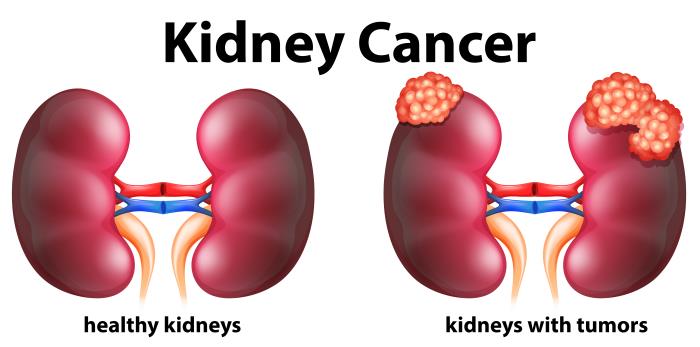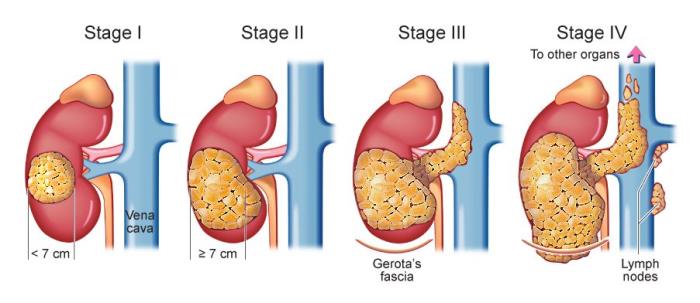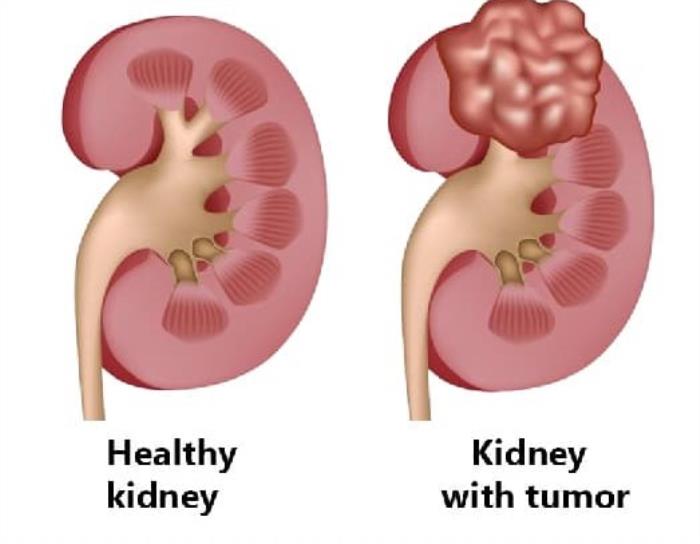India is a leading destination for kidney cancer treatment, offering state-of-the-art facilities and expert oncologists. The cost typically ranges between ₹2.5 lakh and ₹7 lakh, depending on the treatment approach, such as surgery, targeted therapy, or immunotherapy. Success rates vary based on the cancer stage and the chosen treatment, with early-stage cases often achieving higher outcomes. Patients benefit from affordable care without compromising on quality.
Medical disclaimer: This content is for general awareness and does not replace a doctor’s consultation. For diagnosis or treatment decisions, consult a qualified specialist.
At a Glance: Key Takeaways About Kidney Cancer Treatment in India
Kidney cancer treatment in India offers a combination of advanced medical technologies and cost-effective care. Patients can choose from surgical, targeted, and immunotherapy options based on their condition and stage.
- Choose surgery when the tumor is localized and operable.
- Choose targeted therapy for advanced or metastatic cases.
- Opt for immunotherapy when boosting the immune response is critical.
- Consider CyberKnife for non-invasive treatment of small tumors.
- Consult specialists for personalized treatment plans.
Costs & Factors: Typical Ranges
What Influences the Cost of Kidney Cancer Treatment?
The cost of kidney cancer treatment in India depends on several factors, including the type of treatment, hospital location, and the stage of cancer. Advanced therapies like robotic surgery or CyberKnife may cost more due to specialized equipment and expertise. Additionally, pre-treatment diagnostics and post-treatment follow-ups can add to the overall expenses.
Average Treatment Costs in India
Kidney cancer treatment in India typically costs between ₹2,50,000–₹6,00,000 (≈ $3,000–$7,250 USD). Surgical options like nephrectomy are on the lower end, while advanced therapies like targeted therapy or immunotherapy may cost more. Patients should also consider additional costs for hospital stays and medications.
Hidden or Additional Expenses to Consider
Patients should account for hidden costs such as diagnostic tests, travel, and accommodation, especially for international patients. Post-treatment expenses, including follow-up consultations and medications, can also add to the overall budget. Health insurance coverage may help offset some of these costs.
Explore a detailed breakdown of kidney cancer treatment cost in India by visiting our in-depth guide kidney cancer treatment cost in India.
Who It’s For: Eligibility & When to Choose It
Kidney cancer treatment is suitable for patients diagnosed with renal cell carcinoma or other kidney malignancies. Surgical options like nephrectomy are ideal for localized tumors, while advanced therapies like targeted therapy or immunotherapy are recommended for metastatic or advanced-stage cancers. Factors such as age, overall health, and tumor size influence treatment eligibility. Consulting a specialist ensures the most effective and personalized care plan.

How It Works: Steps & Workflow
Initial Diagnosis and Staging
Diagnosis begins with imaging tests like CT or MRI scans to identify the tumor's size and location. A biopsy may be performed to confirm the type of cancer. Staging helps determine the extent of cancer spread, guiding the treatment plan.
Key Treatment Modalities Explained
Treatment options include surgery (partial or radical nephrectomy), targeted therapy, and immunotherapy. Minimally invasive techniques like robotic surgery or CyberKnife are gaining popularity for their precision and quicker recovery times. The choice depends on the cancer stage and patient health.
Post-Treatment Monitoring and Follow-Up
Regular follow-ups involve imaging tests and blood work to monitor for recurrence. Patients may also need lifestyle adjustments and ongoing medications to manage side effects and improve overall health. Early detection of recurrence significantly improves outcomes.
Benefits & Risks: What to Expect
Kidney cancer treatments in India offer several benefits, including access to advanced technologies like robotic surgery and targeted therapies. These approaches can improve precision and reduce recovery time. However, risks such as infection, bleeding, or kidney function loss may occur, depending on the treatment type and patient health.

- Benefits: Minimally invasive options, shorter hospital stays.
- Risks: Potential complications like infection or organ damage.
- Discuss risks thoroughly with your doctor before proceeding.
Timeline & Aftercare: First 4–12 Weeks
Recovery Milestones in the First Month
During the first month, patients typically experience gradual improvement in energy levels and reduced pain. Most can resume light activities within 2–3 weeks, but strenuous tasks should be avoided. Follow-up appointments are crucial to monitor healing and kidney function.
Long-Term Aftercare and Lifestyle Adjustments
Long-term care focuses on maintaining kidney health through a balanced diet, regular exercise, and avoiding smoking or excessive alcohol. Periodic screenings may be recommended to detect any recurrence early. Lifestyle changes can significantly enhance recovery outcomes.
- Attend all follow-up visits as scheduled.
- Adopt a kidney-friendly diet and stay hydrated.
- Engage in light physical activity to regain strength.
Alternatives & When They Fit Better
Non-surgical options like targeted therapy, immunotherapy, or radiation may be suitable for patients who cannot undergo surgery due to age or health conditions. These treatments focus on controlling cancer growth and improving quality of life.

For early-stage kidney cancer, active surveillance may be an option, especially for small, slow-growing tumors. This involves regular monitoring without immediate intervention. Discuss these alternatives with your doctor to determine the best approach for your condition.
- Choose non-surgical options for advanced or inoperable cases.
- Consider active surveillance for low-risk tumors.
- Discuss all options with a specialist to make an informed decision.
Key Differences: Side-by-Side
Who Is a Good Fit for Each Option?
Surgical treatments like nephrectomy are ideal for patients with localized tumors and good overall health. Non-surgical options, such as targeted therapy or immunotherapy, are better suited for advanced stages or patients unable to undergo surgery.
Performance & Outcomes Compared
Surgery offers a higher chance of complete tumor removal, especially in early stages. Non-surgical treatments focus on controlling cancer progression and may require ongoing sessions. Outcomes depend on cancer stage and patient response.
Cost & Ongoing Needs: A Comparison
Surgical treatments in India typically cost ₹1,80,000–₹3,60,000 (≈ $2,150–$4,350 USD), while non-surgical options like targeted therapy may involve recurring costs. Discuss financial implications with your healthcare provider to plan accordingly.
| Dimension |
Surgery |
Non-Surgical Options |
| Candidacy |
Localized tumors, good health |
Advanced stages, inoperable cases |
| Durability/Effectiveness |
High for early-stage cancer |
Moderate, depends on response |
| Medications/Anticoagulation |
Minimal post-surgery |
Ongoing therapy required |
| Recovery Time |
4–12 weeks |
No recovery, but ongoing sessions |
| Risks/Re-operation |
Low, but possible complications |
Higher due to prolonged treatment |
| Cost |
₹1,80,000–₹3,60,000 |
Recurring, varies by treatment |
Latest Updates & What’s Changing
Kidney cancer treatment in India has seen significant advancements, with a growing focus on minimally invasive procedures and targeted therapies. These approaches aim to improve outcomes while reducing recovery time and side effects.

Emerging technologies like CyberKnife and robotic surgery are becoming more accessible, offering precise tumor removal with minimal damage to surrounding tissues. Additionally, immunotherapy and targeted drugs are increasingly used to treat advanced cases, enhancing survival rates.
- CyberKnife: Non-invasive, high-precision radiation therapy.
- Robotic surgery: Enhanced precision for complex cases.
- Immunotherapy: Boosts the immune system to fight cancer.
How to Choose the Right Provider
Choosing the right provider for kidney cancer treatment involves evaluating expertise, facilities, and patient outcomes. Look for hospitals with NABH or JCI accreditation, as these certifications ensure high standards of care.

Consider oncologists with extensive experience in kidney cancer and access to advanced technologies like robotic surgery or CyberKnife. Patient reviews and success stories can also provide valuable insights. For specialized therapies, ensure the hospital offers multidisciplinary care.
- Check hospital accreditations (e.g., NABH, JCI).
- Verify oncologist’s experience in kidney cancer.
- Ensure availability of advanced treatment options.
Top Hospitals for Kidney Cancer Treatment in India
India is home to several renowned hospitals offering advanced kidney cancer treatments. Institutions like AIIMS (Delhi), Tata Memorial Hospital (Mumbai), and Apollo Hospitals (Chennai) are known for their expertise in oncology and cutting-edge technologies.

These hospitals provide comprehensive care, including robotic surgery, targeted therapy, and immunotherapy. Many also have dedicated tumor boards for personalized treatment planning. International patients often choose these centers for their affordability and high success rates.
- AIIMS, Delhi: Government-run, affordable care.
- Tata Memorial, Mumbai: Specialized in oncology.
- Apollo Hospitals, Chennai: Advanced technologies and global reputation.
Success Rates & Outcomes of Kidney Cancer Treatment
Kidney cancer treatment in India typically achieves success rates of 70–90%, depending on the stage and type of cancer. Early-stage cases treated with surgery or targeted therapy often have the best outcomes.

Advanced cases may require a combination of therapies, including immunotherapy and radiation, which can still yield promising results. Factors like patient health, tumor size, and timely intervention significantly influence outcomes.
- Early-stage success rates: 85–90%.
- Advanced-stage success rates: 70–80% with combination therapies.
- Key factors: Early diagnosis and multidisciplinary care.
Emerging Trends in Treatment Options
Recent advancements in kidney cancer treatment focus on precision medicine and minimally invasive techniques. Targeted therapy and immunotherapy are becoming increasingly popular, offering personalized approaches that attack cancer cells while sparing healthy tissues.

Additionally, robotic-assisted surgeries and non-invasive options like CyberKnife therapy are revolutionizing treatment by reducing recovery times and improving outcomes. These methods are particularly beneficial for patients with localized tumors or those unsuitable for traditional surgery.
- Choose targeted therapy for advanced or metastatic cases.
- Opt for robotic surgery for precision and minimal scarring.
- Consider CyberKnife for non-invasive tumor management.
Common Challenges and How to Overcome Them
Patients undergoing kidney cancer treatment often face challenges such as financial strain, side effects, and emotional stress. The cost of advanced therapies can be significant, but government schemes and insurance plans in India may help reduce the burden.
Managing side effects like fatigue, nausea, or infections requires a multidisciplinary approach, including supportive care and regular follow-ups. Emotional support through counseling or patient groups can also play a crucial role in recovery.
- Explore financial aid programs for treatment costs.
- Seek regular follow-ups to manage side effects effectively.
- Join support groups for emotional well-being.
Patient Stories and Testimonials
Many patients have shared inspiring stories of overcoming kidney cancer with the help of advanced treatments in India. For instance, Jagat, a 52-year-old, underwent robotic surgery and returned to his daily routine within weeks, highlighting the effectiveness of minimally invasive techniques.

Another patient, Priya, benefited from targeted therapy, which significantly reduced her tumor size without severe side effects. These testimonials underscore the importance of choosing the right treatment and healthcare provider.
- Robotic surgery offers faster recovery and precision.
- Targeted therapy minimizes side effects for advanced cases.
- Patient success stories inspire confidence in treatment options.
Frequently Asked Questions About Kidney Cancer Treatment in India: Cost, Top Hospitals & Success Rate
What is the average cost of kidney cancer treatment in India?
The cost of kidney cancer treatment in India typically ranges from ₹1,80,000–₹3,60,000 (≈ $2,150–$4,350 USD), depending on the type of treatment and hospital. Advanced therapies like robotic surgery or immunotherapy may cost more.
Which hospitals in India are best for kidney cancer treatment?
Top hospitals for kidney cancer treatment in India include AIIMS (Delhi), Tata Memorial Hospital (Mumbai), and Apollo Hospitals. These centers are renowned for their expertise, advanced technology, and multidisciplinary teams.
What factors influence the success rate of treatment?
Success rates depend on factors like the stage of cancer, patient health, and the chosen treatment. Early-stage detection and advanced therapies like targeted therapy or robotic surgery can significantly improve outcomes.
How long does recovery typically take?
Recovery times vary by treatment type. Minimally invasive surgeries may require 2–4 weeks, while traditional surgeries can take longer. Supportive care and follow-ups are crucial for a smooth recovery.
Are there alternative treatments available?
Yes, alternatives like CyberKnife therapy and immunotherapy are available for patients unsuitable for surgery. These options are less invasive but may not be suitable for all cases.
What are the risks associated with kidney cancer treatments?
Risks include infection, bleeding, or side effects from therapies like fatigue or nausea. Advanced techniques aim to minimize these risks, but regular monitoring is essential.
How can I choose the right doctor or hospital?
Choose a hospital with NABH accreditation and a multidisciplinary team. Research the doctor’s experience in treating kidney cancer and consider patient reviews for informed decisions.
What are the latest advancements in kidney cancer treatment?
Recent advancements include robotic-assisted surgeries, targeted therapy, and immunotherapy. These methods focus on precision, reduced side effects, and improved survival rates.
What is the average cost of kidney cancer treatment in India?
The average cost of kidney cancer treatment in India ranges from ₹2,50,000 to ₹7,00,000, depending on the type of treatment and hospital. Factors like the stage of cancer, type of surgery, and additional therapies can influence the cost. India offers affordable and high-quality care compared to many other countries, making it a preferred destination for medical treatment.
Which are the top hospitals in India for kidney cancer treatment?
Top hospitals for kidney cancer treatment in India include leading multispecialty and cancer-focused institutions in cities like Delhi, Mumbai, Chennai, and Bengaluru. These hospitals are equipped with advanced technology and experienced oncologists. Patients often choose these centers for their comprehensive care, including surgery, chemotherapy, and radiation therapy, under one roof.
What is the success rate of kidney cancer treatment in India?
The success rate of kidney cancer treatment in India is approximately 70–90% for early-stage cases, while advanced stages may have lower rates. Success depends on factors like the stage at diagnosis, type of treatment, and patient health. India’s skilled specialists and modern facilities contribute to positive outcomes for many patients.
Are there advanced treatment options for kidney cancer in India?
Yes, advanced treatment options for kidney cancer in India include minimally invasive surgeries, targeted therapy, and immunotherapy. These methods aim to improve outcomes and reduce side effects. Many hospitals in India use cutting-edge technology and follow global protocols to provide effective care for kidney cancer patients.
How long does kidney cancer treatment take in India?
The duration of kidney cancer treatment in India varies based on the treatment type and stage of cancer. Surgery may require a hospital stay of 3–7 days, while therapies like chemotherapy or immunotherapy may extend over weeks or months. Doctors create personalized treatment plans to ensure the best outcomes for each patient.
Know More About Robotic Surgery
Robotic surgery is a cutting-edge technique used in kidney cancer treatment, offering precision and minimal invasiveness. It reduces recovery time and improves surgical outcomes. This advanced method is increasingly available in top hospitals across India, making it a preferred choice for many patients.
Know More About Robotic Surgery
Know More About CyberKnife Therapy
CyberKnife therapy is a non-invasive treatment option for kidney cancer, using precise radiation to target tumors without surgery. It is ideal for patients seeking effective treatment with minimal side effects. Many Indian hospitals now offer this advanced therapy for better outcomes.
Know More About CyberKnife Therapy
Targeted Therapy
Targeted therapy is a personalized approach to kidney cancer treatment, focusing on specific cancer cells while sparing healthy tissues. It is highly effective for advanced stages of the disease. Indian hospitals provide this therapy at competitive costs, ensuring accessibility for patients.
Targeted Therapy
Immunotherapy
Immunotherapy boosts the body’s immune system to fight kidney cancer effectively. It is particularly beneficial for patients with advanced or recurrent cancer. Leading hospitals in India offer immunotherapy as part of comprehensive cancer care, ensuring better outcomes for patients.
Immunotherapy
Know More About Chemotherapy
Chemotherapy is a widely used treatment for kidney cancer, especially in advanced stages. It involves using drugs to destroy cancer cells or stop their growth. Indian hospitals offer cost-effective chemotherapy options, making it accessible to a broad range of patients.
Know More About Chemotherapy
What is kidney cancer
This image illustrates the anatomy and progression of kidney cancer, helping patients understand the disease better. Visual aids like this are crucial for raising awareness and guiding treatment decisions. It complements the information provided about treatment options in India.

Common Kidney Cancer Treatment Options
This image highlights various kidney cancer treatment options, including surgery, radiation, and advanced therapies. It serves as a visual summary for patients exploring treatment possibilities in India, emphasizing the availability of modern techniques.

Discover the Best Oncologists and Cancer Hospitals in India
When it comes to cancer treatment, finding the right specialist and hospital can make a significant difference in the outcome. In this blog, we have compiled a list of the top oncologists and cancer hospitals across major cities in India, ensuring that you have access to the best care available.
Top Oncologists in Major Cities
For those seeking expert oncologists, we have identified the best specialists in key cities:
Leading Cancer Hospitals
In addition to finding the right specialist, choosing the right hospital is crucial for comprehensive cancer care. Here are the top hospitals in major cities:
Get more indepth information on Cancer treatments and their costs
Conclusion
Finding the right oncologist and hospital is the first step in your cancer treatment journey. Explore the links above to learn more about the top specialists and hospitals in your area.